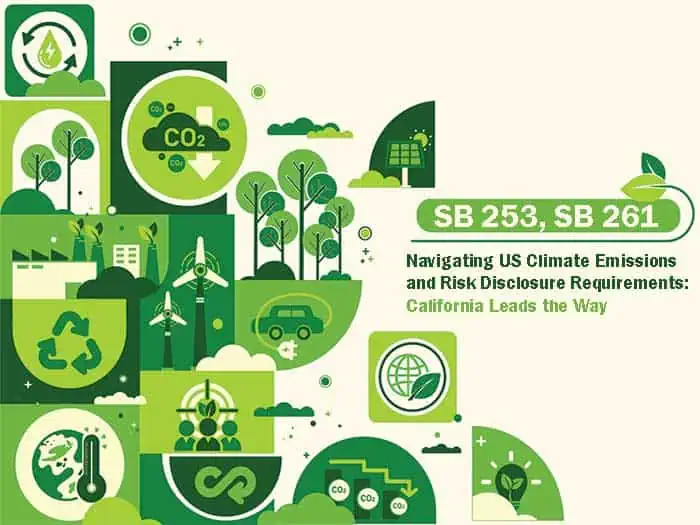


Yesterday, on August 13, 2025, a federal district court judge denied the plaintiffs’ Motion for Preliminary Injunction in the lawsuit challenging California’s SB 253 and SB 261 for Corporate GHG Reporting and Climate Risk Disclosures, respectively (Chamber of Commerce of the United States of America v. CARB (Case No. 2:24-cv-00801-ODW-PVC)). Within the judge’s order, he indicated the plaintiffs’ First Amendment challenge is not likely to prevail during the current court proceeding.
To recap, Corporate GHG Inventories and Climate-related Financial Risk Disclosures are required for large companies under SB 261 and 253 respectively. LINK
What to do now
In short, we recommend that our clients continue preparation to avoid missing the reporting due date or disclosing climate risk late. Read the blog below and use our free, non-commercial resources and advice.
The California Air Resources Board (CARB) is to develop regulations for Senate Bill 253 (SB 253), the Climate Corporate Data Accountability Act in 2025 and has committed to providing those by the end of year. The new law requires public and private businesses doing business in California with total annual revenues over $1 billion to disclose their Scope 1 and 2 greenhouse gas (GHG) emissions starting in 2026. Disclosure of their Scope 3 emissions is starting in 2027.
SB 253 Timelines and Potential Penalties
Scope Definitions
Scope 1 emissions result directly from a company’s activities from sources that the company owns or controls, such as vehicles, boilers, and equipment. An independent third party must guarantee these disclosures.
Scope 2 emissions result indirectly, such as those associated with purchasing electricity, steam, heat, or cooling used by the company. An independent third party must guarantee these disclosures.
Scope 3 includes all indirect emissions from a company’s entire supply chain. Scope 3 reporting is due in 2027 based on 2026 data. Scope 3 emissions may require assurance as well.
As well as GHG emissions disclosures, SB 261, the Climate Related Financial Risk Act, requires some public and private companies to prepare and publish climate-related financial risk assessments biennially. These climate risk assessments are to be consistent with recommendations from the Task Force on Climate-Related Financial Disclosure (TCFD) framework, or their successor, the International Financial Reporting Standards. Companies are to publish the reports on their company’s website. The definition of “doing business in California” is being refined, so continue visiting SCS or our social media accounts for updates.
Educational Resources
There are multiple resources available to help. You’ll find law firms, environmental consultants with GHG verification service firms, such as SCS among them. The most efficient data collection and reporting is from combining all three because each brings value to your plan and may help provide operational efficiencies as part of the process.
Other Free Resources Including the latest UPDATE HERE: